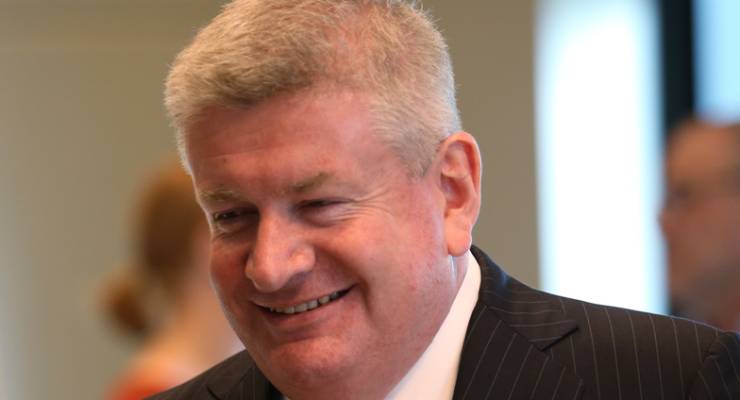
Even bringing up the debate that perhaps copyright terms might be a tad too long in Australia was enough to send copyright maximalists into a spin this week, forcing Communications Minister Mitch Fifield to correct the record.
In the Productivity Commission’s report on the state of Australia’s intellectual property system, released in April, the commission noted that the ideal length of time for a piece of content to remain in copyright would be between 15 and 25 years after its creation, rather than the “author’s life plus 70 years” term we have in Australia today, thanks largely to Disney via the US Free Trade Agreement. But in its report, the commission made clear that this view was a “finding”, rather than a specific recommendation, because, as Crikey reported at the time, Australia’s hands were largely tied in terms of copyright because of international trade agreements.
It didn’t take long for the Productivity Commission’s prediction of the Chicken Little response from copyright holders to come true. Well-respected authors such as Richard Flanagan accused the government of trying to take royalty money away from them. Author Jackie French said that the report was “economically rubbish” and “morally indefensible”:
“Innocently, I had assumed that the royalties from these books would continue to support my husband and myself in our old age. Now, in my sixties, I have been told by the ill-named ‘Productivity Commission’ that ‘Writers rarely write for financial reasons,’ and I may only own my work for 15 years.”
This was the sideshow to the bigger fight copyright owners are having, which is preventing a fair use exception — which would allow copyrighted material to be adapted and used for a variety of purposes — from being introduced into Australian copyright law. This would replace the outdated fair deal exceptions, which require most of those who want to use copyrighted material to seek permission first. The Productivity Commission recommended fair use be implemented, as fair deal limits much of what people can do in Australia today.
“Where [fair use] is alive and well in the US and Israel, innovation and creativity fosters, and from our perspective, it doesn’t really undermine the commercial rights of the actual rights holders themselves,” Productivity Commissioner Karen Chester told Crikey last month.
Many copyright defenders, including Foxtel and Kim Williams, pointed to a PwC report released in February that claimed that a fair use exception would reduce Australia’s GDP by $1 billion and force rights holders to take up court cases to protect their content. Williams said:
“‘Fair use’ is an American legal principle which would allow large enterprises to use copyright material for free, which, under Australian law, they currently have to pay for. PwC recently estimated that introducing ‘fair use’ in Australia could result in a loss of GDP of more than $1 billion.”
The problem was, the Productivity Commission pre-empted this in its report by reviewing PwC’s findings and finding them wanting. It found the report had assumed current copyright settings were optimal, and conflated fair use with third-party use, and assumed that one could easily compare the Canadian situation on copyright with Australia’s. Most importantly, the cost-benefit analysis used to derive the $1 billion figure was flawed:
“It concentrated on potential impacts on publishing, ignoring the fact that fair use would apply to all of the copyright industries. The cost benefit analysis also implicitly assumes a closed economy model where transfers represent a redistribution of welfare between consumers and producers without a change in overall welfare. However, as a large net importer of copyright material, transfers from Australian consumers to foreign producers do affect community welfare.”
Their criticisms of the PwC report were conveniently ignored by those arguing against fair use, who all continued to cite the PwC report as evidence that the sky would fall in should fair use be implemented in Australia.
Nevertheless, the government has felt the pressure. In a press release this week, Fifield put out a statement categorically ruling out changing Australia’s copyright term:
“This is not something the Government has considered, proposed or intends to do.”
Despite a concerted campaign from rights holders against fair use, Fifield hasn’t, however, ruled out potentially bringing in fair use changes after the election.
“The Turnbull Government is committed to ensuring that the intellectual property system provides appropriate incentives for innovation and the production of creative works. We also need a system that does not unreasonably impede further innovation, competition, investment and access to goods and services.”
Legislation to “simplify the protections” for copyright owners would be introduced at the start of the next term of Parliament, Fifield said. This is largely for the non-controversial “safe harbour” changes to make it easier for libraries to preserve copyright material.








Josh, the problem with the Productivity Commission’s finding that the term of copyright should be between 15 and 25 years after creation of a work is not that it questioned the current term, but that the finding exposed the philistine and commercially naive view of the report’s authors about their subject matter. The point has been made that if the Commission’s finding were the current law, Foxtel wouldn’t have had to even ask Tim Winton if it could turn Cloudstreet into a mini-series, let alone pay him anything. There are many other examples, if the report’s authors had bothered to use google for 5 minutes (think Chris Bailey’s song Like Fire Would being recorded by Springsteen 28 years after it was written).
Flanagan’s outrage was mainly directed at the suggestion that the removal of parallel import restrictions for books should be accelerated and the offhand comment by the report’s authors that the negative effect of this for authors could be addressed by existing direct government subsidies (the absurdity of this idea being highlighted by the concurrent decimation of Commonwealth arts funding).
Again PwC is shown to have produced a bunch of crap-to-order, easily shredded by fact checking.
I cannot understand how they are still in business.